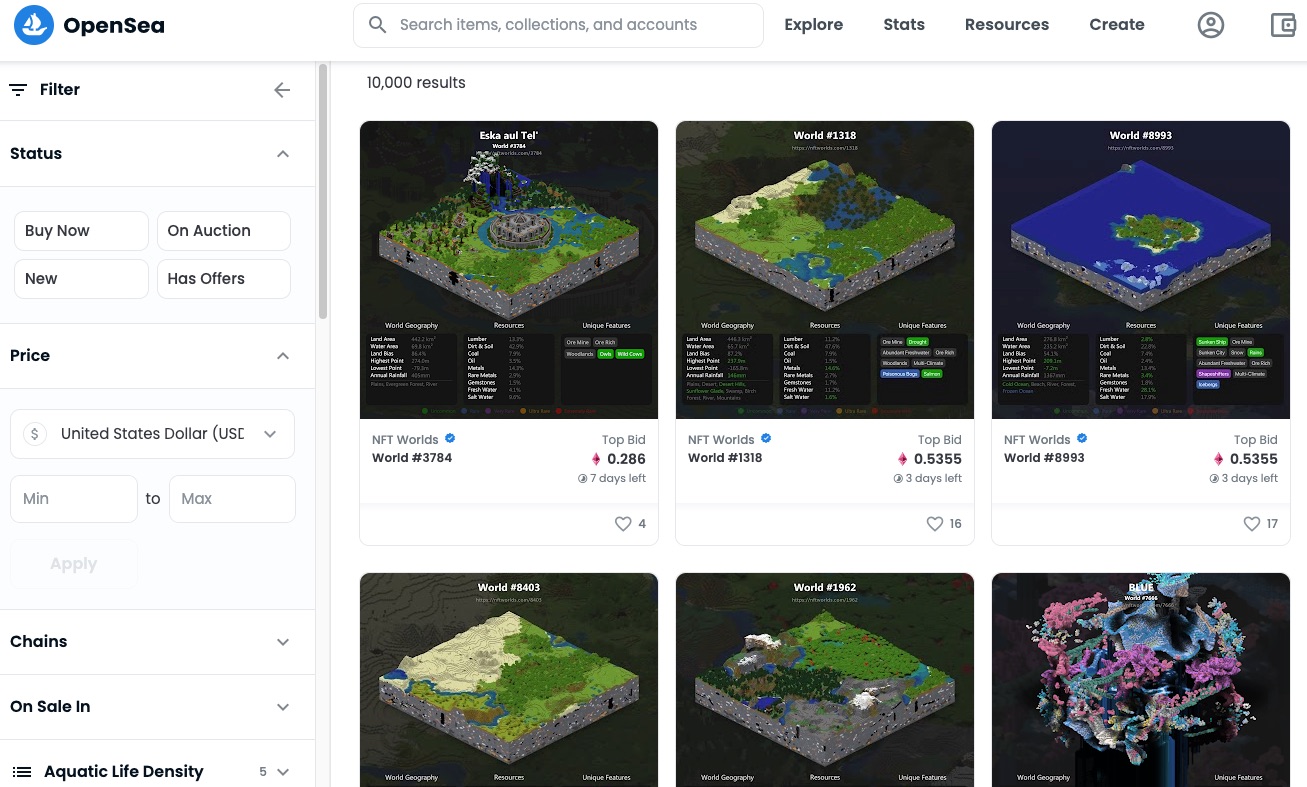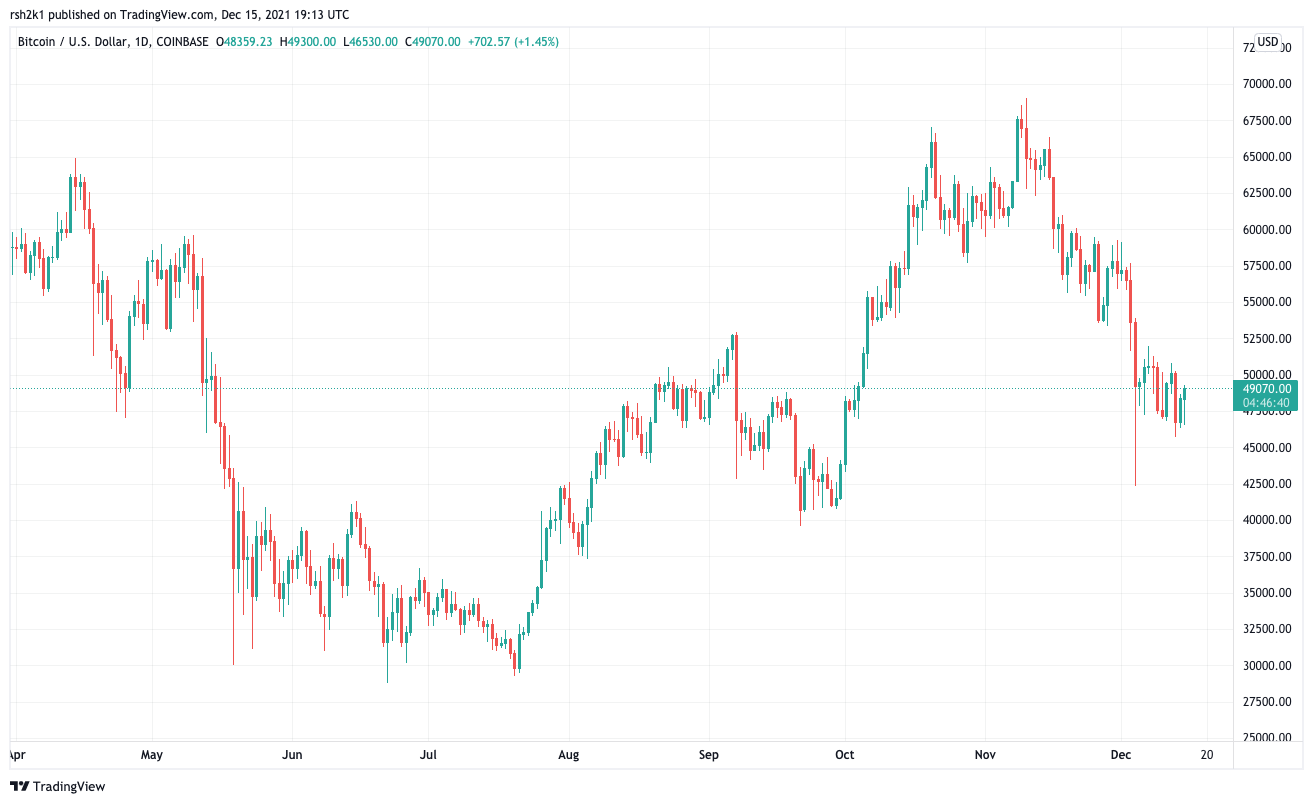I’m gearing up to release the next two big annual pieces — grading myself on last year’s predictions and 2022 predictions — but I got yet another email from some PR firm:
Investment in virtual real estate has become the talk of the town in the real estate world as millions are being poured into virtual real estate purchases. Even big-time real estate players are eying the virtual space in addition to traditional physical real estate investments. XYZ can help your audience understand why so many are shifting to real estate investing in the virtual world and how it could shape the future of real estate investing.
And I’ve seen a couple of posts on social media asking real estate agents whether they plan to take their talents to the Metaverse. I thought I’d take a moment to think through this. Turns out, I have a few observations to make.
Virtual Real Estate Is Not Real Estate
The first comment is a too-obvious observation: virtual real estate is not real estate, no matter how much some people want to conflate the two.
I say this as someone who has actually owned virtual real estate, built a virtual home (well, a castle…), and has hosted virtual parties in my virtual home.
First, even if one world in the Metaverse does create unique digital land and unique digital properties by using NFTs, that doesn’t prevent other worlds coming online. That is, Facebook could create one world. Google creates another world. Baidu creates a world. And some startup creates a world. Eventually, those worlds will interconnect, but there’s no real limit to new world creation.
Network effect will tend towards one primary world with secondary worlds coming off of it (think hub-and-spoke) but even that is no guarantee. There was a time when MySpace was the biggest social network after all. So the idea in real estate, that you should buy land because they’re not making any more of it, doesn’t apply to virtual land.
Second, real estate is valuable because of travel time and effort. “Location, location, location” is a thing because there’s a huge difference between living downtown near bars and restaurants and living an hour out in the burbs. It takes time and energy to move your physical body from one location to another.
In a virtual world, that time and energy is entirely arbitrary and constrained only by software. There is nothing that prevents worlds from enabling instant teleportation. Play some video games sometime and you’ll see for yourself.
Which means that the idea of “prime real estate” in a virtual world is unconnected to time and distance; it’s more related to eyeballs, to traffic, to population. It’s not real estate; it’s more like a website.
Virtual Real Estate and Data
The second point to make is that much of the value of a real estate agent in the real world is related to expertise.
Because real estate is unique, and because real estate data is difficult to gather (somebody somewhere has to go do things like measure the lot, take pictures of the house, etc.), those who are in the business of transacting in real estate have an advantage in information access. Plus, even if “data” becomes widely available, there are insights about a property, about a neighborhood, about an area that is really difficult to put into structured databases.
The example I used in the past is knowing which side of the street floods when it rains. It’s theoretically possible for that information to be in a database somewhere, but I really doubt it.
This lack of information, lack of data, is not a thing in the Metaverse. Because the entire world exists in a database somewhere; everything in the world is an entry in some database, some ledger somewhere.
There is no need to ever hire an inspector to make sure the plumbing is as is represented in the paperwork about the property… because the database itself would have all of the information on the “plumbing” inside the “walls” of the “house.” Every single thing in a virtual world is known to the system as a whole, because every single thing is an entry in a database somewhere.
So unless the world creator somehow makes that data unavailable — which goes counter to the decentralized ethos of the blockchain, web3 and the Metaverse — and then makes the data available only to a select few “professionals”, there isn’t anything that a real estate agent would know that the buyer and seller wouldn’t know or easily find out on their own.
Intermediaries in the Metaverse
Since the Metaverse does not exist, we won’t know precisely how intermediaries would work in that world. But if the value of professionals is not connected to them knowing something that the consumer doesn’t know, then it has to be connected to services that the professional would provide that the consumer either cannot do for himself, or doesn’t want to do for himself.
What might these be in a virtual world?
It really helps to have spent time in a virtual world to think through this. I’ve spent at least a decade obsessively playing MMORPGs (Massively Multiplayer Online Role Playing Games) like World of Warcraft in my youth. Who knew that gigantic waste of time would come in handy? Of course, technology has come a long way since the 90s so some of the things I was doing in-world are an anachronism now.
There is one specific example that comes to mind. I distinctly remember setting up a selling bot in the organically-grown marketplace in Asheron’s Call (a game from the late 90s) because I couldn’t be online 24/7 and because sitting in the market advertising my warez wasn’t fun at all. I’d go play the game, collect treasure, then deposit the treasure with the bot. Buyers can come interact with the bot and buy whatever was in inventory automatically. It was a vending machine.
Apply that to buying and selling of virtual real estate. In the 21st century.
I’m having trouble seeing why anyone would need another person to help them do that. If you have ever spent time in DeFi world, you already know there are dozens if not hundreds of decentralized exchanges where people can set up their own trades, their own liquidity pools. It isn’t as if a seller of virtual land needs to hire a REALTOR to list the property in the MLS. Take a look at Opensea, the top NFT marketplace today:
Why would this system need any intermediary at all?
Furthermore, there won’t be complicated title or mortgage paperwork for virtual properties. Appraisal isn’t necessary when everything to know about the land and the property itself is already in the database. You certainly don’t need a photographer, or someone to manage repairs and renovations.
In short, there is no need for an intermediary in the Metaverse. Let me rephrase that: there won’t be any need for a human intermediary in the Metaverse. There will be thousands of software, bots, AI intermediaries instead. “I’m looking for a 3BR/2BA single story house under 20 ETH” can be processed by some bot in a matter of seconds, and then kept up to date in realtime.
The Value of Professionals in the Metaverse
As I see things, the only real value of a human professional in the Metaverse is judgment and wisdom. The data is entirely out there, entirely transparent, and entirely open to everyone. But that doesn’t mean that everyone will come to the same conclusions.
Here’s Bitcoin’s price chart since April:
Will Bitcoin go up or down? If up, how much? If down, how much? And when?
Everyone in the world has access to this exact same data. And tons more data besides. But some people will make the correct call and others will not. There are thousands upon thousands of people who will use all kinds of data, interpret that data, do more research, and come up with their guesses (because that’s what they are, guesses). If you’re right, you make a fortune; if you’re wrong, you lose your shirt.
Being able to analyze virtual properties and come to convictions and conclusions will be enormously valuable. An enormous amount of that value comes from the fact that the person coming to the conclusion has done additional work and additional research that the consumer has not. Again, the information is available to all; the analysis takes work.
Here’s an example of someone whose conclusions and convictions I find compelling:
Look at the work he has to do in order to come to his conclusions and convictions. He may very well be wrong, but he’s done the work.
All of the data, all of the news, all of the information James uses is available to all of us. That doesn’t mean the rest of us have the skill to do the analysis that he does, and it certainly doesn’t mean that the rest of us will spend the time necessary to do the research, do the technical analysis, and then think about what that means.
This will be the real value of virtual real estate professionals in the Metaverse. It will be someone who has the skills to do the analysis who then has taken the time and effort to do the analysis on virtual properties. It will be someone who isn’t an intermediary, since bots and AI can do all of that easily, but an advisor.
No License Required
Add on the fact that the Metaverse will exist, if it does at all, outside of any nation’s laws. That’s whole long story, but it isn’t as if Nevada’s land use laws will apply to virtual real estate on World #8993 hosted on 20,000 servers across the globe. It simply can’t.
Which means there won’t be “real estate agents” who have jobs because of a license, because of real estate laws. There will only be virtual asset advisors who have jobs because of their skill, their judgment, and their time and effort to do the analysis. None of them will be licensed. All of them will be paid based on their reputation, their brand, which will be based on performance and results… which will be transparent, visible, and available because the transaction and the properties are all on-chain, on-ledger.
A Question… Leading to Final Thoughts
Thinking through this, a question comes to the forefront of my mind: Why wouldn’t this system migrate to the physical world?
Technology growth is exponential. But we can only surmise what will exist ten years from now based on what we know today and the human mind has real trouble grasping what exponential growth looks like. So our vision is extremely limited and constrained.
But I could imagine technology advancing enough that all of the data about real physical property is also on-chain. Think about a small cockroach-sized bot that can crawl a house with sensors and cameras and create a full 3-D image of everything in it. Imagine some satellite-based tech that does know which side of the street floods when it rains. Yeah, that’s sci-fi… but like I said, we have a hard time with exponential technology growth. I know of a number of other startups that are hard at work trying to digitize the physical world.
In the physical world, government authority and government power is more present. So things like licenses and title and so on will remain a thing for quite some time.
Nonetheless, the trend towards disintermediation of human beings does strike me as inevitable. That hardly means the end of real estate agents, but it does mean a shift in value of professionals in the real world to match their value in the virtual world: analysis, judgment, and time & effort.
Smart brokers like Phillip Cantrell at Benchmark Realty in Nashville are already on this trend. I know, because he told me exactly this. Whether their agents listen or not is as yet unknown.
Let’s leave with this thought: it might not be a terrible idea to throw new real estate agents into the Metaverse to be virtual real estate advisors to see who sinks and who swims. The ones that swim? Those are likely the ones that will dominate physical real estate in the years ahead.
-rsh





1 thought on “Quick Observation: Real Estate Agents in the Metaverse?”
Rob I would love to have you on my podcast to talk about this topic.
I host a podcast called leaders of lifestyle and it’s for high net worth clients.
Leadersoflifestyle.com
Your article and take is amazing would you be willing to come on and share with my audience?
It can be done virtually obviously so you can do it from anywhere and anytime you want.
Looking forward to hearing from you.
All my best
Mike-
Comments are closed.